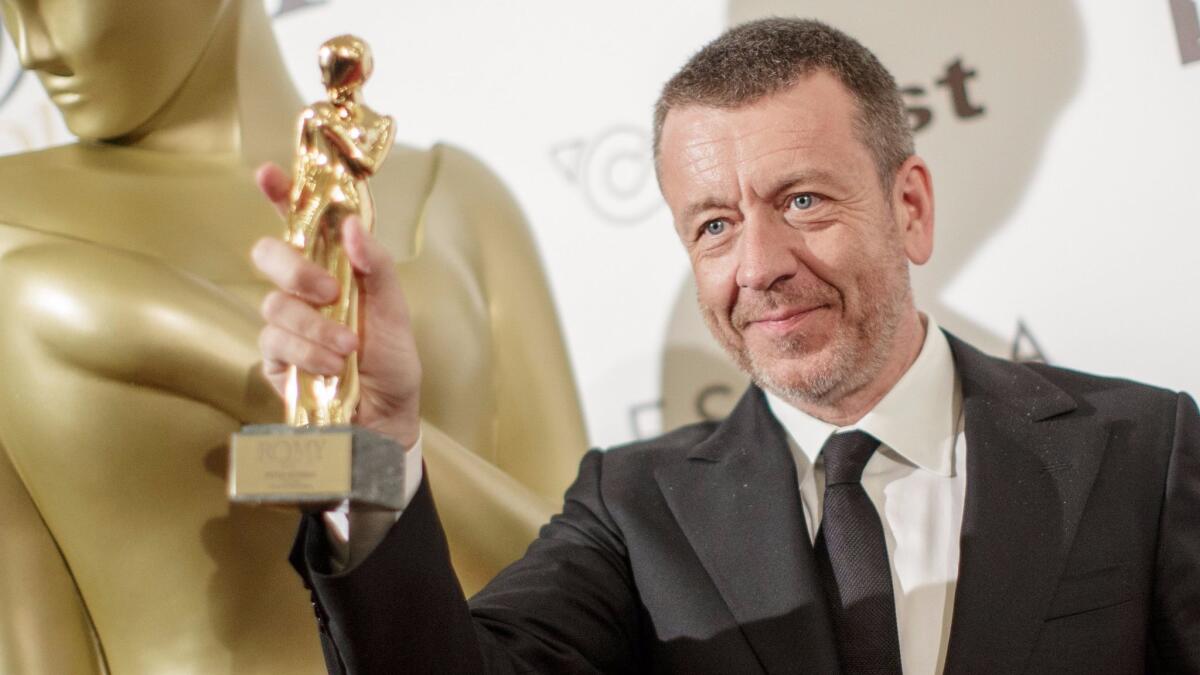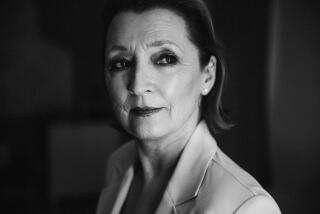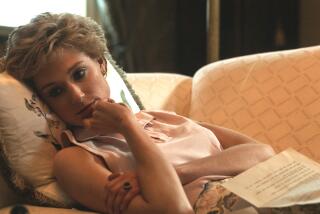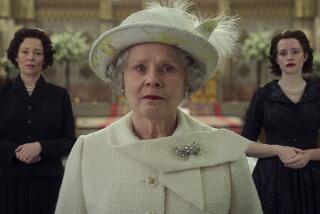How did ‘The Godfather’ and ‘The Sopranos’ inspire Netflix’s royal family hit ‘The Crown’?
Although she’s never met him, Queen Elizabeth II has been very good to Peter Morgan. First he wrote 2006’s “The Queen,” featuring Helen Mirren’s Oscar-winning performance in the title role. Then the British dramatist penned the 2013 hit play “Audience,” centered on her weekly meetings with a succession of prime ministers. And now he’s overseeing Netflix’s Golden Globe-winning, six-season production “The Crown,” which follows Queen Elizabeth II through her 65-year-and-counting reign, complete with behind-the-scenes fractious family turmoil. It’s a lot of queen for a guy who says he had zero interest in England’s royal family until a few years ago.
“I only wrote ‘The Queen’ because I knew I could write Tony Blair and I was interested in the clash between the elected prime minister and this unelected head of state,” Morgan explains by phone from London. “The minute you put them in a room together, no matter what you do with the dialogue, the scene’s going to work on two levels — the personal and the political. And there’s no way I would have written ‘The Crown’ if it did not involve a private audience in every episode between the prime minister and the queen.”
Season 1 of “The Crown,” written entirely by Morgan, reconstructs the sometimes tense relationship between Winston Churchill (John Lithgow) and Queen Elizabeth (Claire Foy). In one characteristic episode, she urges the ailing leader to address London’s deadly 1954 smog crisis without overstepping the boundaries of her constitutionally limited powers. Constricted by tradition and steeped in hierarchy, “The Crown” owes a considerable thematic debt to mafia classic “The Godfather,” Morgan says.
See the most read stories this hour »
“This wide-eyed ingénue comes into this system, learns the rules of power, learns at times to dissemble, learns with each passing year to use her elbows and prevail. It gave me great pleasure to show that the queen is much tougher than you’d think, out-living and out-surviving all of her rivals. It’s really the Michael Corleone story, but with less violence.”
Morgan also drew inspiration from “The Sopranos” as a model for heightened family dysfunction. “The families in ‘The Sopranos’ and ‘The Crown’ are different from every other family because they belong to systems that have unique rules and flavors. At the same time, they’re the same as every family. That’s why sticking closely to the specifics of the anthropology in ‘The Crown’ is quite important to me.”

Like many families, siblings clash in “The Crown.” Unlike most families, Elizabeth cites the 1772 Royal Marriage Act to prohibit her flamboyant younger sister Margaret (Vanessa Kirby) from marrying the man she loves until she turns 25. Morgan observes, “Margaret is the natural movie star in that particular family but it’s her sister who got the leading role. Elizabeth wanted to be in the background. The last thing she wanted was the crown on her head.”
Like Margaret, Queen Elizabeth’s husband Philip (Matt Smith) feels stifled by the young monarch’s authority. “Philip’s a triple alpha, a natural leader, commander of a destroyer during the war,” Morgan says. “His particular misfortune and lifelong challenge was to walk in the shadow and bite his tongue. What kind of impact does that have on a marriage? What happens there behind closed doors?”
To find Season 1 stories, Morgan and his team of researchers cherry-picked the historical record for dramatically ripe material. Morgan then deployed his gift for dialogue to imagine plausible exchanges between the conflicted parties. Morgan says, “The thing about ‘The Crown’ is that the specifics of the words and the conversations — nobody knows if they’re accurate or not. But I’m not fictionalizing anything. I’m joining the dots and I’m making deductions and assumptions based on facts. I won’t dramatize an event unless it happened.”
In “The Crown,” Morgan renders Buckingham Palace as a seething vortex of discontented characters striving mightily to appear happy in public. “People might think there’s nothing interesting about the royal family, but in Prince Philip and Princess Margaret alone, you see two unbelievably resonant human conflicts within a family situation that I think can sustain a dramatist for some time,” Morgan says.
“In the end, you just have to trust that all human beings are worthy of dramatization if you drill down and find their complexities. Because everybody has them. Everybody.”
More to Read
From the Oscars to the Emmys.
Get the Envelope newsletter for exclusive awards season coverage, behind-the-scenes stories from the Envelope podcast and columnist Glenn Whipp’s must-read analysis.
You may occasionally receive promotional content from the Los Angeles Times.







